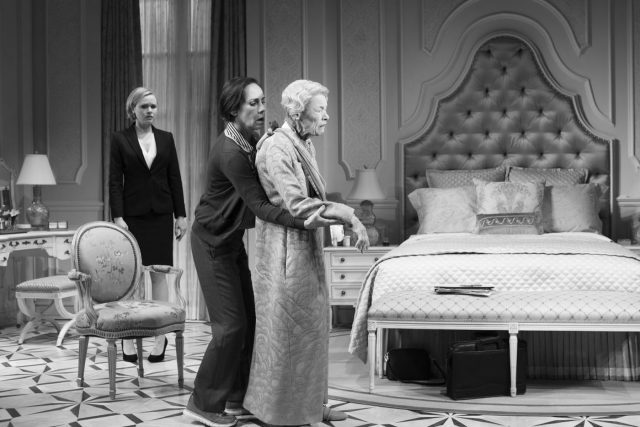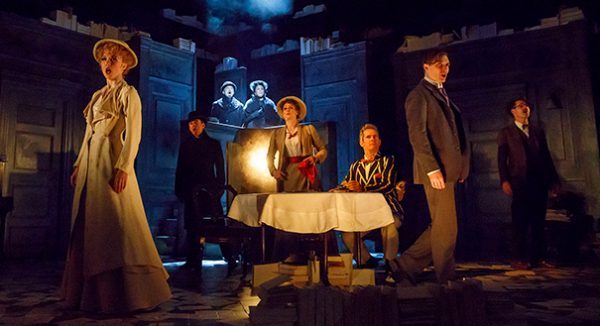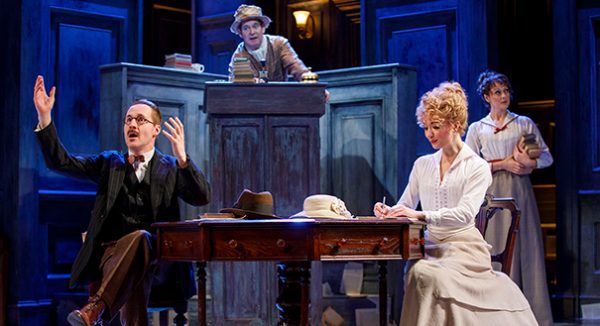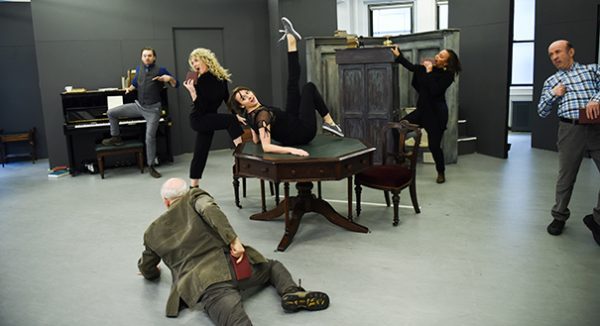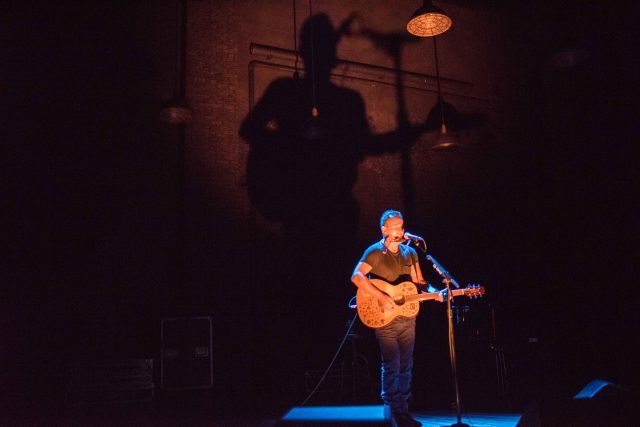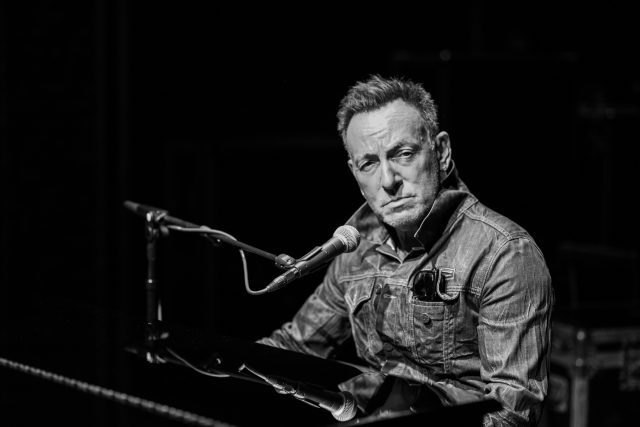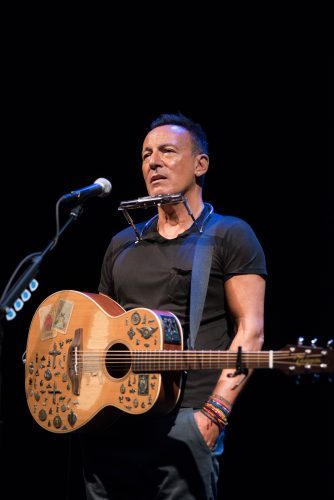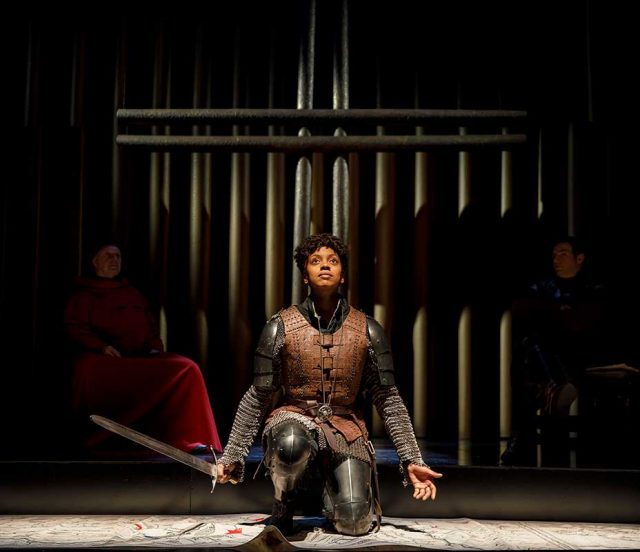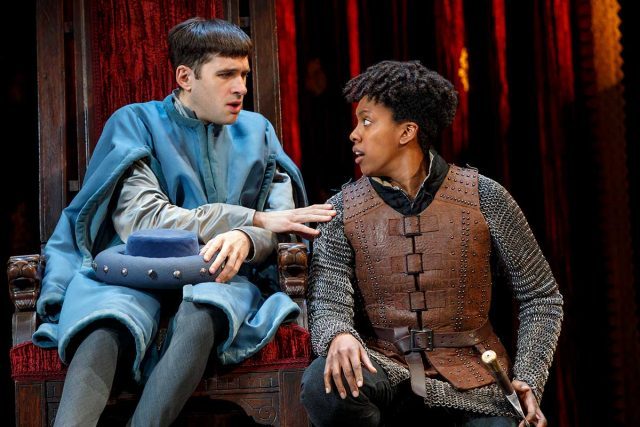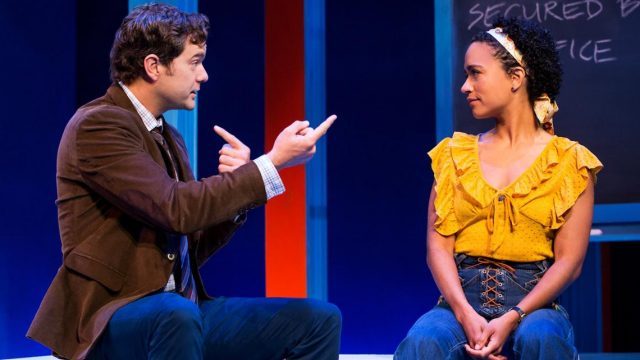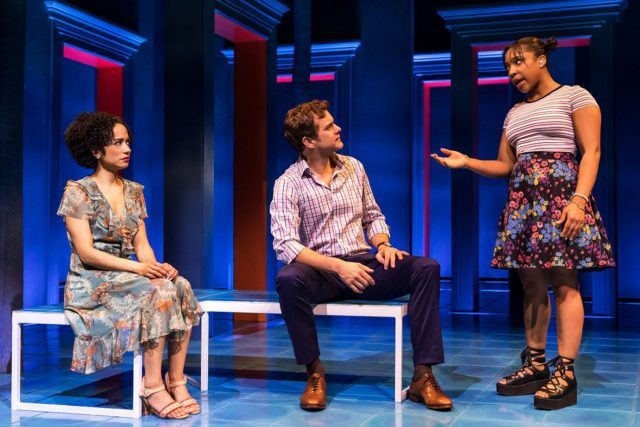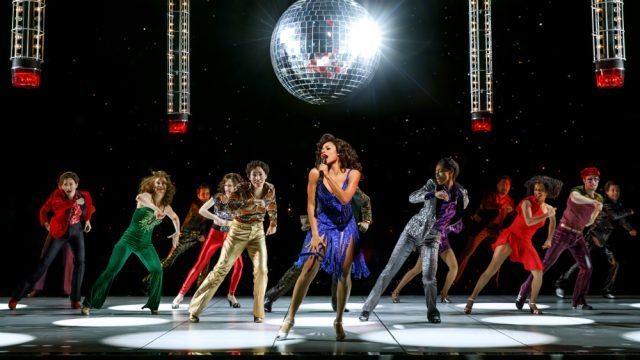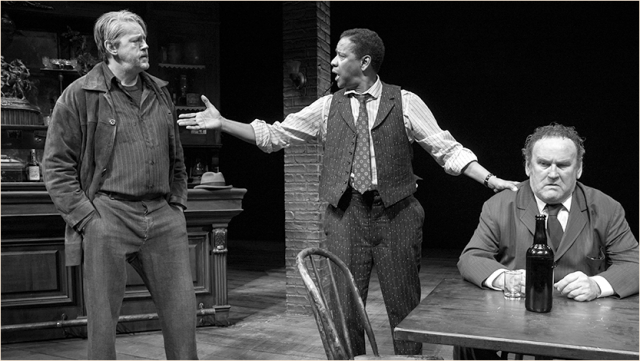
David Morse, Denzel Washington, and Colm Meaney star in George C. Wolfe’s Broadway revival of The Iceman Cometh (photo by Julieta Cervantes)
Bernard B. Jacobs Theatre
242 West 45th St. between Broadway & Eighth Ave.
Tuesday – Sunday through July 1, $79 – $209
icemanonbroadway.com
Two-time Oscar and Tony winner Denzel Washington is nothing short of majestic as traveling hardware salesman Theodore “Hickey” Hickman in George C. Wolfe’s powerful adaptation of Eugene’ O’Neill’s staggering masterpiece, The Iceman Cometh. Washington’s charm lights up the dark goings-on at the Bernard B. Jacobs Theatre, where set designer Santo Loquasto has transformed the stage into the No Chance Saloon, the Bedrock Bar, the End of the Line Café, a dank, depressing Greenwich Village dive in 1912 owned by Harry Hope (Colm Meaney) that is populated by a gang of luckless losers intent on drinking themselves into oblivion. The only thing they have to look forward to is the twice-a-year arrival of Hickey, who cheers them up by filling them with free drinks and telling wild stories from the real world outside. He’s like Jesus turning water into whiskey for his apostles, who consist of Larry Slade (David Morse), a former activist who has turned his back on life and wants nothing to do with anyone; Ed Mosher (Bill Irwin), a former circus performer; Harvard Law School graduate Willie Oban (Neal Huff); Boer War nemeses Piet Wetjoen (Dakin Matthews) and Cecil Lewis (Frank Wood); nighttime bartender Rocky Pioggi (Danny McCarthy), who also is a pimp for Margie (Nina Grollman), Pearl (Carolyn Braver), and Cora (Tammy Blanchard); Chuck Morello (Danny Mastrogiorgio), the daytime bartender who is in love with Cora; disgraced NYPD detective Pat McGloin (Jack McGee); communist revolutionary Hugo Kalmar (Clark Middleton), who sleeps through much of the show; Joe Mott (Michael Potts), the only African American at the bar, who wants to open a black-only gambling house; and Jimmy Tomorrow (Reg Rogers), a former journalist who believes he will return to society “tomorrow.”
Larry is deeply disturbed when Don Parritt (Austin Butler) shows up, the teenage son of an old lover from Larry’s anarchist days. Don desperately wants Larry’s approval and acceptance, but Larry refuses to care about anyone or anything, choosing to drink till he dies even though he’s probably the only person in the bar who could actually still play a role in society. As the men and women bicker, argue, joke around, and prepare for Harry’s birthday party, Hickey finally arrives, bigger and better than ever, immediately injecting life into the motley group of drunks. But this time around, Hickey, in his trademark straw hat, has something more to offer besides free drinks and Champagne: He is determined to help each man find a reason to stop being a worthless drunk and instead pick himself off his barstool, return to the real world, and make his “pipe dreams” come true. He is also armed with a secret that he’s not quite ready to share.
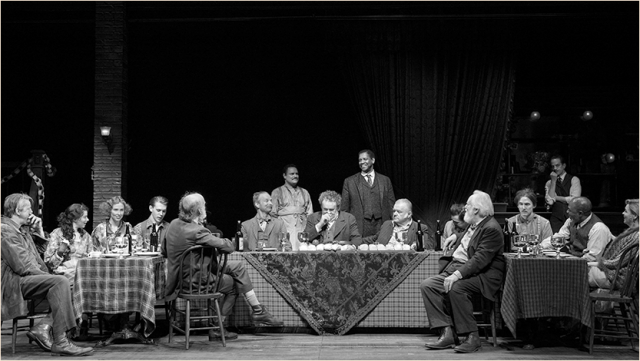
Harry Hope’s (Colm Meaney) birthday party is reminiscent of “The Last Supper” in The Iceman Cometh (photo by Julieta Cervantes)
Four-time Pulitzer Prize winner O’Neill (Long Day’s Journey into Night, Strange Interlude) wrote The Iceman Cometh in 1939, but it was not staged until after WWII, in 1946, debuting at the Martin Beck Theatre. It deals with politics, racism, and the forgotten men of America, but O’Neill does not blame society, the economy, or war for their alcoholism and retreat from existence; these are men who would have given up no matter the era, lending the play a terrifying kind of timelessness. Hickey has never been their savior; ironically, he is the one who betrays them by suddenly trying to give meaning to their miserable lives. Wolfe even stages the party scene at a long table reminiscent of Leonardo da Vinci’s “The Last Supper.” Wolfe has trimmed the show down to a slim three hours and fifty minutes, with two intermissions and a pause, pacing the drama well, like drinking a smooth glass of high-end whiskey and not a shot, or full bottle, or rotgut. The cast is exceptional, a team of pros giving it everything they’ve got. Meaney brings depth to Harry, Rogers plays Jimmy with just the right tease of hope, Potts adeptly handles the racism angle, and Butler, in his Broadway debut, is bright-eyed and determined as the young Don, a part previously played by such future stars as Jeff Bridges and Robert Redford.
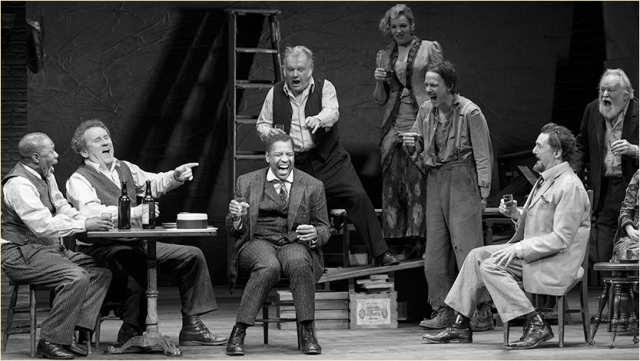
Hickey (Denzel Washington) has quite a story to tell in Eugene O’Neill revival at the Jacobs Theatre (photo by Julieta Cervantes)
But the key to the success of the show is the relationship between Hickey and Larry; over the years, the former has been portrayed by Jason Robards, Kevin Spacey, Brian Dennehy, James Earl Jones, Lee Marvin, and Nathan Lane, while the latter has been played by James Cromwell, Robert Ryan, Patrick Stewart, Conrad Bain, Tim Pigott-Smith, and Dennehy. Washington and Morse, who both starred as doctors in the groundbreaking, Emmy-winning 1980s series St. Elsewhere, are staunch and deeply affecting in their roles. Morse’s Larry is loud and angry, often walking to the sides of the stage to just watch the other losers, as if he is better than them, even if he won’t admit it. Washington’s Hickey throws knowing glances at Larry; he wants his friend to change but knows it’s unlikely. Washington commands the stage with his full body, gesturing with his arms and legs, at times hunching over just a bit and leaning his head forward as he spreads his new ideas. He delivers the final monologue — on a chair, not a cross — beautifully as his disciples gaze intently from behind. Both Washington and Morse have received Tony nominations for their performances; the show has also been nominated for Best Revival, Best Scenic Design, Best Costume Design (Ann Roth), Best Lighting (Jules Fisher and Peggy Eisenhauer), Best Sound (Dan Moses Schreier), and Best Director. The title comes from Hickey’s classic story about returning home one day to unexpectedly find the ice salesman with his wife in the hay, but it also refers to the specter of death haunting each one of these characters.
